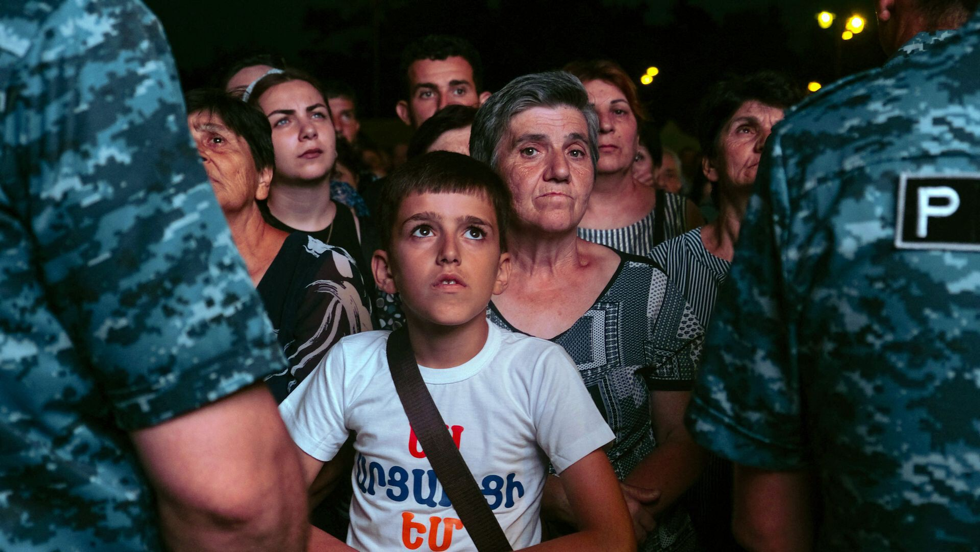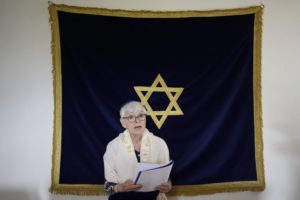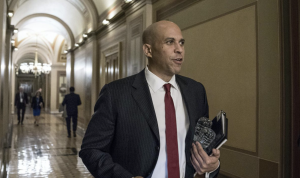The U.S. and other countries are facing growing pressure to do more to stop Azerbaijan’s blockade of the Nagorno-Karabakh region, where a former chief prosecutor of the International Criminal Court recently determined ethnic Armenians are facing genocide.
The big picture: The blockade has left about 120,000 people largely without food, medicine, drinking water and other essentials, despite more than a dozen large trucks loaded with aid ready to enter the region.
The contested territory of Nagorno-Karabakh is within Azerbaijan’s internationally recognized borders, but its population is predominantly Armenian and it has its own government that is closely linked to Armenia.
What they’re saying: Former ICC chief prosecutor Luis Moreno Ocampo concluded in a report last week that the situation in Nagorno-Karabakh is an ongoing genocide.
“Starvation is the invisible Genocide weapon,” Ocampo wrote, adding thatwithout “immediate dramatic change, this group of Armenians will be destroyed in a few weeks.”
Ocampo is now making urgent demands for the international community, including the U.S., to step in.
As a signatory of the Genocide Convention, the U.S. has the obligation to act, Ocampo told Axios.
It’s a call echoed by human rights groups. The U.S., European Union, the UN and others must “press Azerbaijan to stop and to ensure that there is free and adequate flow of food, medicine and humanitarian goods through the Lachin road,” Rachel Denber, deputy director of the Human Rights Watch Europe and Central Asia division, told Axios.
Secretary of State Antony Blinken spoke with Azerbaijani President Ilham Aliyev at the end of July and “underscored the urgent need for free transit of commercial, humanitarian, and private vehicles through the Lachin corridor,” according to the State Department.
But Ocampo and rights groups say it’s not enough.The U.S. must come together with other parties to “find an agreement on how to treat the problem politically,” Ocampo said, adding that if “there is no such agreement, the problem is now that it’s clear that the U.S. will be an accomplice of a genocide.”
The State Department told Axios in an emailed statement that the U.S. “remains deeply concerned about Azerbaijan’s continued closure of the Lachin corridor.”
It added that free transit must be restored immediately.
Catch up quick: The entrance to the Lachin Corridor – a lifeline to Armenia for the people of Nagorno-Karabakh – has beenmostly closed since December.
Hostilities between Azerbaijan and Armenia, former Soviet republics, persist despite last year’s Russia-brokeredcease-fire that came after Azerbaijan launched an attack on Armenia, escalating a decades-long dispute over Nagorno-Karabakh.
Russian peacekeepers stationed at the entrance to the Lachin Corridor were supposed to ensure free movement, but months later, the area remains cut off from the rest of the world. Azerbaijan has established a military checkpoint, blocking all traffic, AP reports.
Azerbaijani officials claim the checkpoint is necessary for security reasons.They have accused the International Committee of the Red Cross of using its medical vehicles for “smuggling” undeclared goods.
The ICRC said in a statement that “no unauthorized material has been found” in any vehicles owned by the organization, but it does “regret” that without its knowledge “four hired drivers tried to transport some commercial goods in their own vehicles which were temporarily displaying the ICRC emblem.”
Azerbaijani officials have also rejected that genocide is taking place, claiming without providing evidence that Ocampo’s conclusion “representsserious factual, legal and substantive errors.”
What to watch: The UN Security Council is expected to meet later on Wednesday to discuss the situation in Nagorno-Karabakh.
Ocampo believes that if the U.S., Russia and the European Union, could “combine the efforts, they stop this in 24 hours.” But he acknowledged that Russia’s invasion of Ukraine and Moscow’s deepening relationship with Azerbaijan have complicated the situation.
It’s unclear if Russia would use its veto power if the UN Security Council decided to take action and refer the case to the ICC, as Ocampo and others have called for. Still, Ocampo told Axios, “Armenians cannot be a collateral victim of the Ukrainian conflict.”
Human rights groups and Ocampo have also urged Azerbaijan to abide by an order from the International Criminal Court of Justice to end the blockade.
The bottom line: “This genocide is a test for the international community,” Ocampo told Axios. “Can we create a 21st century with no genocide?”




